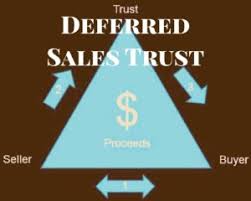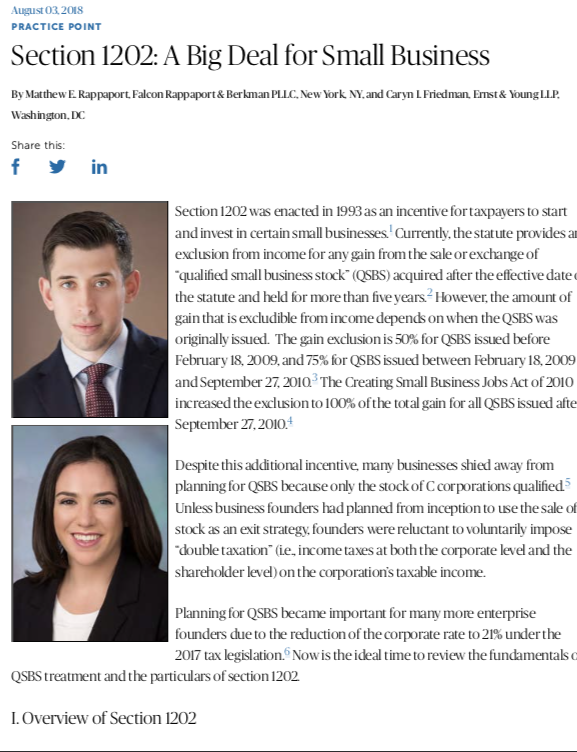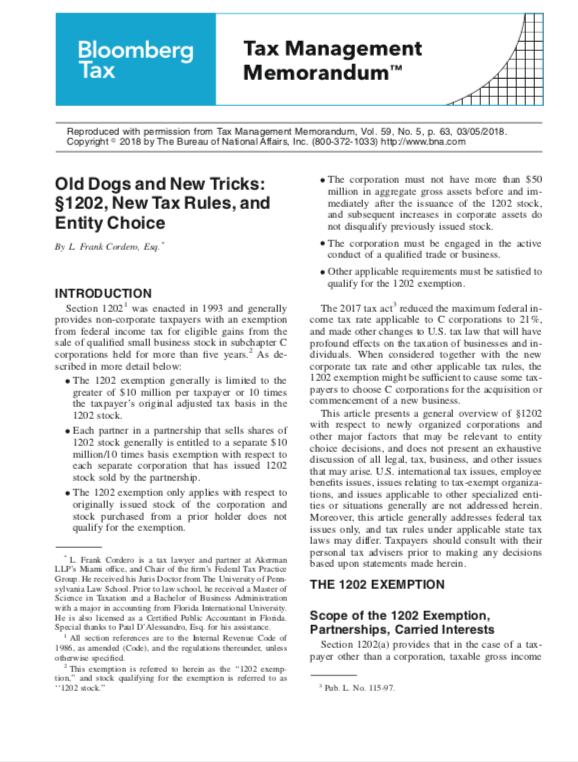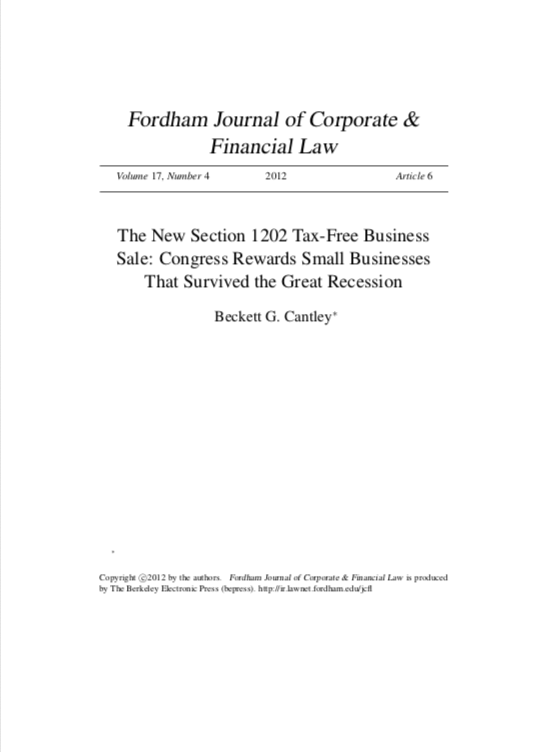STRATEGIC MANAGEMENT OF TAX LIABILITIES
“DEALER-FACILIATED INSTALLMENT SALES” IRS CODE 453
DEFER CAPITAL GAINS FOR DECADES & GET ALMOST THE FULL SALE PRICE AS TAX-FREE CASH NOW
The term “Dealer Faciliated Installment Sale” refers to the  “process of turning a non-revenue-generating item into cash. When it comes to long term capital gains taxes on sale of assets, there is a way to have more flexibility in how you pay taxes, save a lot of money on the taxes, and re-invest or use almost the full amount of the sale in any way you choose. When you clicked on ”Dealer-Facilited Installment Sales Strategy” you are going to be intrduced to a strategy that can defer capital gains for decades.
“process of turning a non-revenue-generating item into cash. When it comes to long term capital gains taxes on sale of assets, there is a way to have more flexibility in how you pay taxes, save a lot of money on the taxes, and re-invest or use almost the full amount of the sale in any way you choose. When you clicked on ”Dealer-Facilited Installment Sales Strategy” you are going to be intrduced to a strategy that can defer capital gains for decades.
This tax strategy is an excellent protocol for Individuals, Business Owners, Doctor Groups, Attorneys, Farmers & Ranchers, etc. who are exposed to a large IRS capital gains tax payment from the sale of a privately-held business entity, or have property or other investments where the Investor can use this strategy to typically get at least 95% of the sale in cash today as an immediate payment, while deferring capital gains tax on this money for decades.
DISCLOSURE: The Internal Revenue Service issued a prior detailed Private Letter Memorandum released on May 7, 2021 which discusses that the “Dealer-Faciliated Installment Sale” offered by the Dealer in Capital Assets we work with does differ from other promoters who are offering a similar “Monetized Installment Sale.”
Our firm only works as a representative for only one uniquely qualified dealer in capital assets because of a long past history of a credable succesful track with this strategy. This may suggest a continued future successful record with this strategy because of the specialized expertise of a company that now has been in business doing dealer-facilitated 453 installment sales for over 40 years.
“The MONETIZED 453 INSTALLMENT” SALE OFFERED BY OTHER PROMOTERS has made the IRS list of Top Tax Scams to Avoid along with Charitable Remainder Annuity Trusts, Foreign Captive Insurances, Maltese Individual Retirement Arrangements, Distressed Asset Trust Transactions, Discretionary Non-Grantor Irrevocable Spendthrift Trusts, etc., and all may become improper because of many promoters taking advantage of abusive variations in the way these transactions can be structured. However, such examples as Charitable Remainder Annuity Trusts and Monetized Dealer-Faciliated Installment Sales etc., are legitimate financial tools that unethical promoters of these types of transactions can misuse. Abusive Tax Transactions have always been part of the constantly growing list of potentially improper tax avoidance schemes. https://www.irs.gov/businesses/corporations/listed-transactions
The ”Dealer-Facilitated Installment Sale Method” reviewed below is also a type of structured monetized (turning a non-revenue item into cash) installment sale, also referred to by the IRS as a 453 Installment Sales transaction, and the dealer-facilitated installment sale is simply a “specially structured loan” with an installment sale. The sale process is described in Internal Revenue Code 453, and allows you to do an installment sale combined with a funding loan, giving you access to typically at least 95% of the sale proceeds while deferring capital gains tax for up to 30 years. This is Cash for you to use with No Associated Restrictions or Conditions.
Long term capital gain taxes at the federal and state levels, and the Net Investment Income Tax can consume 30% to 40% of your profit in taxes. The “Dealer-Facilitated Installment” 453 Strategy can preserve almost all of the real value of your property.
The method involves the conventional sale of an asset that you have owned for more than a year and is typically valued at more than Five Hundred Thousand Dollars ($500,000).(See Specialized Annuity for Amounts Subject to Capital Gains tax less than $500,000)
There are four key parties in this method:
- You, the seller
- Your buyer
- A capital asset dealer (This is the person or entity, referred to as the “obligor” who legally is required to provide a payment or service).
- A lender
Utilizing a loan with an installment sale, you negotiate a sale with your buyer, but a capital asset dealer resells the property to the final buyer in an all-cash, simple interest sale under the original terms, and receives the cash for the sale from the buyer at closing which is then placed in an escrow.
The seller is then given an installment contract from the dealer, pays a small fee and receives a loan from a third party lender for typically at least 95% of the sale. This loan is paid back as a no money down, interest only loan with a non-amortizing 30-year term or for a negotiated longer period of time.
The seller is then able to choose to immediately invest the non-taxable loan proceeds with no restrictions, at any time at their own discretion, or the seller may use that cash for any purpose. When the installment contract is completed, the initial principal placed in escrow equals or exceeds the amount remaining in the loan, and at that point the seller recognizes the gain and pays taxes on the installment sale for a non-amortizing 30-year term, or for a negotiated longer term.
Therefore, the strategy also offers inflation protection, as you are then paying off the deferred taxes with depreciated dollars. An Estate Plan can also include paying off the IRS with a cash value life insurance policy.
Eligible property includes residential, business and investment real estate, sale of privately held business entities and stock from privately held companies, tangible assets such as yachts, airplanes, collectible automobiles and a number of other types of valuable assets. Cannot be used with capital gains from publicly traded stocks (See Deferred Sales Trust).
For further reading describing a “Dealer-Facilitated” IRS 453 Installment Sale (as an example of eligible property for Farmers & Ranchers) click on link:
Creighton Law Review pdf article. The article is titled, “INTERNAL REVENUE CODE SECTION IRS 453: “THE TAX DEFERRED INSTALLMENT SALE OF FARMLAND AND FARM COMMODITIES”(Creighton Law Review. vol. 52, no. 2, pg. 153-168, March 2019) by Darren R. Carlson, J.D.
”Dealer-Faciliated” Installment 453 Strategies are additionally a vast improvement over directly selling a business to a good prospect with an agreement to make payments toward the purchase price, and then watch the business possibly fail in just a few years after sale. With the Structured Installment Sale, this risk is removed, and the seller continues to receive their payments from the Structured Installment Sale.

For further reading click on link:
1031 EXCHANGE
Another more commonly known strategy for deferring capital gains taxes is the 1031 exchange. It requires another “like-kind property” to be purchased, and taxes are then deferred until the sale of the replacement. It is literally a swap of one property for another of like kind.
It is a very popular choice as it is typically a simple 10 step process to initiate and perform a 1031 Exchange. The 1031 Exchange can be appropriate for very basic uncomplicated smaller transactions. Nevertheless, easy sometimes can be problematic.
Unfortunately to work properly, because of the low likelihood of someone else who has a property you want really wanting your property, many 1031 exchanges can end up as taxable delayed exchanges and being complicated by involving 3 parties.
Successful completion of a 1031 exchange also requires compliance with a number of IRS regulations. Ten of these 1031 exchange rules are listed below. Failure to comply with any of these regulations will result in failure of the installment sale and will trigger capital gains tax.
- All cash from the sale must be applied to the purchase of the replacement property.
- If you have cash left over, the intermediary pays it to you at the end of the 180 days. That cash is called “boot” and is typically taxed as a capital gain.
- An exchange of depreciable property for non depreciable property (land ) is not allowed.
- Exchange must be real property for real property. Mortgage loans or other debt must be considered on the property you surrender, and any debt on the replacement property you acquired. If you don’t receive cash back but your liability goes down, that will also be treated as income just like cash.
- The replacement property cost must be greater than or equal to the sale price of the surrendered property.
- The amount of debt on the replacement property must be equal or greater than the debt on the surrendered property.
- There must be common ownership between between the surrendered property and the replacement property.
- The surrendered property must be held for investment purposes.
- A primary residence or vacation property cannot be exchanged without first conversion to an investment purpose.
- The property surrendered must have been held for enough time before reselling to demonstrate investment intent.
DEALER-FACILIATED IRS 453 vs 1031 EXCHANGE
Dealer-Faciliated Installment Sales avoid the issues discussed for the 1031 Exchange. The Dealer-Faciliated Installment 453 Sale has many significant advantages over 1031 Exchanges which are highlighted below:
- Works for almost any investment asset such as properties, yachts, collectible cars, almost anything other than an exchange traded security.
- Defer depreciation recapture for decades.
- No “like kind” reinvestment limitation, seller is allowed to use the loan proceeds for any purpose including reinvestment or guaranteed income.
- No need for another replacement investment, or delaying a sale for why the replacement investment is sought.
- No time limitations such as 45 days and 180 days.
- The “Dealer-Faciliated” 453 Strategy can be used as a 1031 Rescue for a failed 1031, as the taxpayer can use Treasury Regulations allowing a structured installment sale to default a failing 1031 into a “M 453”.
- The seller is immediately able to typically use at least 95% of the cash from the installment sale for any purpose.
- The loan is automatically serviced by the escrow account, with the seller protected from the bank.
- Can be used for personal homes, farms, or other agricultural properties. For farmers who use the cash method of accounting, deferred payment has been a common tax strategy utilized to defer the reporting of income into the following tax year.** Recent IRS standards have allowed Monetized 453 deferred payment transactions, for the sale of ranches, farms and agricultural commodities, with a no dollar limit, so as to be accessible to nearly all farmers.
DEFERRED SALES TRUST
The Deferred Sales Trust™ (“DST”) is a tax deferral structure based on IRC Section 453, the section governing installment sales. Under this Code Section the Seller accomplishes deferral by not in fact receiving the actual or constructive receipt* of the proceeds at the time of the sale.
*Money made available to the taxpayer without any restriction during the taxable year but not in actual possession of the taxpayer.

The sale of appreciated real estate such as commercial and high end residential, investments, very valuable art, business asset sales such as a medical or other professional practice, manufacturing company, architectural firm, farm enterprise, construction company, investment company etc., or virtually any appreciated real property, are good candidates for the DST strategy.
It is a special type of installment sale which is a more flexible and can be more attractive than the 1031 Exchange. However, the 1031 Exchange is a simpler process to complete.
The concept behind the Deferred Sales Trust is simple but the application of the DST has many intricacies which must be satisfied to make it work as planned. No one strategy described on this website page fits all circumstances. These are all very different strategies as individual differences require different conditions.
A brief explanation the idea behind a Deferred Sale Trust is to sell the real estate or other appreciated property to the Trust with an installment sale. The trust then sells the property to a buyer, and the funds are placed into the Trust without paying taxes on the capital gains.
This Strategy has a 23-year rack record and has survived 14 IRS Audits. The company or buyer acts as a Trustee. You sell your capital asset which can be real estate or a boat or other capital asset which is personal property in accordance with a deferred installment contract which the seller designs. THE DEFERRED SALES TRUST UNLIKE THE “MONETIZED 453” HAS BEEN USED TO DEFER CAPITAL GAINS ON PUBLICLY TRADED STOCK.
The Trust then sells the asset to a new buyer. The sales proceeds can be held in cash, reinvested and distributed according to the directions of the owner’s installment contract. There are zero taxes to the Trust on the sale, since the Trust purchases the property from the owner for the same price for which it is sold.
This Pre-Tax Money is then held by the Trust and invested according to the contract with the holder of the note. The result is deferring the capital gains tax for a period of time determined by the taxpayer. Rather than experience the drain of equity that results from a fully taxable sale, the DST allows the seller to generate a potentiality higher rate of return by leveraging the pre-tax proceeds from the sale.
The Trust is paying its own taxes and the fees are expenses of the Trust. The Deferred Sales Trust is an Irrevocable Trust. You, the taxpayer are a creditor of the Trust. Therefore, these fees are reducing your gross return instead of passing through to you as deductions. Assets in an irrevocable trust have greater protections. The irrevocable trust typically does not count toward the value of your estate for an additional potential reduction of the 40% estate tax.
The three main benefits listed below are reasons for less risk and the potential for more wealth accumulation with the Deferred Sales Trust.
- Payments can be easily modified to respond to altered circumstances or conditions.
- No timing restrictions pertaining to when to invest.
- More Choice of Investment Products. The Deferred Sales Trust merged with Premium Financed Life Insurance has many Estate Tax planning benefits and can be used for family wealth management, or for business owners and investors seeking a tax efficient exit strategy. With additional planning the Deferred Sales Trust blended with Premium Financing Reduces or Eliminates Estate Taxes. For people with large estates or for the sale of property worth many millions of dollars the Deferred Sales Trust provides for a unique exit strategy for very valuable property. However, there is no step-up in basis for appreciated property in an irrevocable trust for estate planning. Premium financed life insurance owned by the trust helps to alleviate economic loss from the exclusion of a no step-up in basis benefit. Everything with taxation has pros and cons depending on individual given circumstances. The Deferred Sales Trust could additionally however, remove proceeds of the sale from the sellers taxable estate and potentially beyond the Unified Tax Credit limitation.
Option One: PAY CASH FOR LIFE INSURANCE AS AN ESTATE PLANNING COMPONENT
Option Two: PAID BY PREMIUM FINANCING FOR A LIFE INSURANCE POLICY WITH ASSISTANCE FROM THE GOVERNMENT
- We can show that in almost all cases a premium finance design for a life insurance policy is substantially better than paying cash.
- Choosing the premium finance design option over paying cash typically saves Hundreds of Thousands of Dollars over the term of the loan and provides for more liquidity and cash flow for other investments by the DST.
COMPELLING ADDITIONAL REASONS FOR CHOOSING DEFERRED SALES TRUST AND THE PREMIUM FINANCING DESIGN
Suppose a 4 Million Dollar sale of Property with a Basis of 2 Million for a Two Million Dollar Gain.
Federal and State Tax is Approximately 37% giving you $740,000 Capital Gains Tax on 2 Million Gain now Owed to the IRS.
The 4 Million Dollar Property is sold for cash by the Trustee of the Deferred Sales Trust to a buyer.
- $740,000 of the 4 Million is saved from Capital Gains Tax. This $740,000 and Cash Value of the life insurance, can be used as a required amount of collateral for a bank loan to fund the premiums of an insurance policy. This does not affect income paid to the seller or investments of the Deferred Sales Trust since assets must remain in the Trust to comply with the deferral installment contract.
- The life insurance cash value after a while pays off the rest of the bank loan with the increasing cash value within the policy. Therefore, the only prior cost of the policy is the bank interest from financing the loan for insurance premiums.
- The Government has Now facilitated funding for Interest-Free Loans to pay for a Life Insurance Policy with money not used to pay Capital Gains Taxes to the IRS. The Government has “provided” for the DST an Interest-Free Loan to purchase life-insurance.
- Similarly, consider the $740,000 that was not paid to the IRS, being invested by the Trustee of the Deferred Sales Trust at 6% giving the DST an additional income or $44,400 a year.
The Deferred Sales Trust Premium Finance Strategy can save the client thousands of dollars or more, and at the same time presents the opportunity to make a profit on the money you would have paid to the IRS in the year of the sale.
“In summary, one of the most crucial benefits of the Deferred Sales Trust is tax deferral with the complete freedom to choose investment options. This strategy may allow the investment of money from the the sale into investments that are not allowed by other capital gains tax deferral strategies.
For instance an elderly couple living on a farm for several decades. and their children were sent off to college and do not want to return to the farm. The farm couple does not want to purchase more real estate so the 1031 Exchange or “M 453” is not applicable. The Deferred Sales Trust would permit them to sell their holdings and defer taxes without acquiring new property.
The Deferred Sales Trust is also a unique benefit for a Corporation, LLC, Living trust, Partnership, or Farm Cooperative. If partners or members of a entity have different intentions for retaining or sharing of their percentage for their share of the sale, the DST will give each individual owner the ability to pursue their individual investment goals.
The Deferred Sales Trust can mitigate or eliminate some types of depreciation recapture. The Deferred Sales Trust allows the owner of the property to defer all taxation of highly appreciated property including some types of depreciation recapture for as long as the owner chooses. There is no time limit on the length of time the seller can receive cash flow, and the seller can delay the payment of taxes until he starts receiving the actual proceeds from the sale which is at the time of his choosing.
The funds in the DST will reinvest for income and can develop and run a business or fund a new business while remaining as a tax deferred entity for that income.

For further reading click on link:
Oklahoma Bar Journal, February 2019, “Deferred Sale Trust – What’s All the Hype”
This strategy allows you to receive income payments as you need them or can be a stream of supplementary income and therefore can be used or enhance retirement income. This income stream would be based on the pre-tax proceeds from the sale instead of after tax proceeds.
The Deferred Sales Trust provides a solution for clients who have investments or a business or own property for a very long time that is now a greatly appreciated asset. With the Deferred Sales Trust there is no need to be reluctant to sell because of fear of capital gain taxes dramatically injuring profits or net worth.
DEFERRED SALES TRUST vs 1031 EXCHANGE
Includes Almost all the Advantages of the Monetized 453 preferences compared to the 1031 Exchange and the following is a brief comparison of important differences.
- The 1031 Exchange and the “M 453” are both not as Flexible as the Deferred Sales Trust.
- The Deferred Sales allows for risk-adjusted investments such as marketable securities like Exchange Traded Stocks & Bonds which can be reinvested for diversification. This is not allowed by either the 1031 Exchange or Monetized 453.
- Unlike the 1031 Exchange the Deferred Sales Trust gives a new depreciation schedule when used to purchase real estate or a business which can significantly increase return on investment.
- The 1031 Exchange carries over the same cost basis from the relinquished or the original purchase of property to your new property.
- The 1031 Exchange could fail and become a taxable event because of the danger that an appropriate loan could not be finalized in time.
- The Deferred Sales Trust (and Monetized 453 strategy) can be used as a 1031 Rescue for a failed 1031 as the taxpayer can use Treasury Regulations allowing a structured installment sale to default a failing 1031 into a DST.
- The Deferred Sales Trust has a tax deferred blank check to fund or purchase a new business or purchase real estate that is not a “like-Kind Property.”
- Low inventory of 1031 properties during the set time frame of the 1031 Exchange can lead to overpaying for the asset.
- The 1031 Exchange does not allow for an unequal shared arrangement for individual members of a business entity.
- The 1031 Exchange does not give the taxpayer the freedom to choose an optimal timing for the purchase of another asset.
- Goodwill can be the most valuable asset of a business and cannot be deferred as an asset using a 1031 Exchange but is an allowed deferrable asset with the DST.
SPECIALIZED ANNUITIES
A Structured Installment Sale with flexible payments can also be accomplished with a Specialized Annuity. Amounts less than Five Hundred thousand ($500,000.00) subject to Capital Gains tax are able to be Structured with a Specialized Annuity for a guaranteed cash flow with guaranteed rates of return with no investment or reinvestment risk. The Specialized Annuity can prevent your paying the IRS a high tax rate, so you have more money to fund other investments or a better lifestyle. The Specialized annuity is also commonly used by attorneys to mitigate tax liabilities from a large settlement. For further reading click on link: www.cbsnews.com
This approach can also be used as a capital gains tax strategy with an individual or a corporation and is used for specific Estate Planning objectives. If tax deferred payments from an Installment Sale are made into a Trust for Estate Planning purposes, this strategy may allow for the postponement of capital gains tax for up to 40 years.
RESTRICTED PROPERTY TRUST
Restricted Property Trusts are utilized as a preferred tool for tax planning, wealth building, and wealth preservation.
Restricted Property Trusts help Highly-Taxed Business Owners, Doctor Groups, Attorneys, Sports Figures, and Entertainers, to achieve high earnings, reduce income tax payments and grow their assets by making Pre-Tax Deductible Contributions.
The Restricted Property Trust is an excellent tax efficient alternative to deferred compensation for Law Offices and Medical Practice Clinics. If a physician has his or her own practice, he or she can invest for themselves and do not have to include employees.
Restricted property trusts have the benefits of tax-advantaged distribution and tax-deferred accumulation, while being a conservative fixed-asset class, comparable to a bond portfolio, or Certificate of Deposit (CD).

- C Corporations, S Corporations, LLC’s, and most Partnerships and other business entities with earned income may setup a Restricted Property Trust. Sole Proprietors cannot.
- Unlike qualified plans, a Restricted Property Trust may be used exclusively to benefit owners. It is totally discriminatory.
- Participants must be able to commit to funding a minimum contribution of $50,000 per year for at least 5-years. Only business entities who feel 100% confident in their ability to make these contributions should establish an Restricted Property Trust. Failure to comply results in amounts accumulated forfeited and donated to a client directed charity.
- Each participant can select their own level of contribution regardless of what other participants contribute.
- A Restricted Property Trust provides 100% annual business entity tax-deductible contribution to the Trust and only partial current income inclusion.
- A restricted Property Trust is classified as a “Welfare Benefit Plan”, where welfare concerns death, disability, or disease.
- A Restricted Property Trust works by funding a “specially designed” Cash Value Whole Life Insurance Policy for the participant. They can be used any time there is a business need for life insurance coverage, such as for key man coverage, or buy/sell agreement requirements,and sufficient coverage is needed to require the desired contribution.
- The employer or corporation pays in 100% of the Pre-Tax Deductible Contributions to the trust for each participants life insurance policy. Because the yearly minimum contribution is $50,000, that’s a significant tax deduction.
- Participants who can actually be involved in a Restricted Property Trust, plan and make contributions and receive distributions, are only the shareholders or partners in a corporate entity or other allowed company structure. There is no requirement to offer the Trust to employees.
- However, participants who are non-employers (shareholders) have to specify 30% of the contribution as taxable income. This equates to a tax rate of approximately 15%, for the non-employer participant which is substantially lower than individual income tax rates.
- The cash value of whole life insurance policies grows tax-deferred. Tax-deferred does not mean tax-free. It simply means that, for the time being, participants don’t have to pay tax on the cash value appreciation of the plan.
- Because contributions grow, participants can get 45-50% more than what they initially contributed. Therefore, the 30% that non-employer participants paid tax on earlier is now tax-free income. When the policy is completely funded, the policy then transfers to the individual, and a withdrawal from the policy covers any taxes owed in this transfer.
Since Restricted Property Trusts are in increments of 5 years, participants will enjoy tax deferral for a significant time period. You can extend your Restricted Property Trust plan after the first 5 years. Extensions happen in 5 year increments.
Tax-exempt cash flow is then enjoyed by the participant. Or a participant can do a tax-free transfer to another kind of insurance such as an Annuity.
What Are the Benefits of a Restricted Property Trust?
- High-income earning business owners are able to make significant contributions provided a business need for life insurance coverage exists, and the amount of coverage needed is sufficient enough to maintain the desired level of contribution.
- Low-Risk, High Return on Investment.
- The plan does not affect contribution to any qualified plans so you can continue to contribute to both without any impact on the other.
- Ideal if maxing out qualified plan contributions.
- 100% tax-deductible contribution to your business.
- Business receives 100% tax deduction on the contributions and also decides contribution amount (no contribution limit).
- The assets are protected from creditors while the plan is being funded.
- A Restricted Property Trust may provide earnings of 8% or more when compared to other fixed-income vehicles.
- A legacy is provided for family or partners.
There are 21 applicable sections of tax code for the Restricted Property Trust Plan. But the main sections that allow the Welfare Benefit Plan are sec 419 & 419(A). There are also two IRS rulings stating that the Restricted Property Trust Plan is compliant. The deductions are allowed under IRC 83 & 162. The system is Patented.
Restricted Property Trust Summary
Restricted Property Trusts are not qualified plans, and do not affect the amount of contributions that can be made to other qualified plans such as 401(k), Profit Sharing Plans, or Defined Benefit Plans.
Restricted Property Trusts are only allowed to benefit the owner(s) or shareholders of a company. Individual owners get to independently set their levels of contribution. However they do require a minimum contribution of $50,000 per year for a minimum of 5 years. Restricted Property trusts are not subject to 409 A.*
- 5 years funding is required, and any extensions must be in 5 year increments.
- No funds can be accessed until the policy is distributed from the trust to the participant.
- If the specified amount of funds are not contributed each year, all the accumulated contributions are given to a public charity. The assets can never revert back to the corporation.
*Section 409 A of the Internal Revenue Code regulates non-qualified deferred compensation paid by a “service recipient” to a “service provider” by generally imposing a 20% excise tax when certain design or operational rules contained in the section are violated.
TAX-FREE BUSINESS SALES
SELL STOCK IN A QUALIFYING COMPANY TAX-FREE
Sell Your Company For Millions of Dollars and Pay No Tax
- No Federal or State Capital Gains Tax
- No Alternative Minimum Tax
- No Net Investment Income Tax
- No Personal Income Tax
- No Negative Effect on Liquidity
- No Required Reinvestment of Sales Proceedings
- Does Not Use A Charity
- Not Eligible for 1202? Please Review Above Installment Sales Options. Contact Us For Additional Customized Alternatives.
For further reading click on links:



